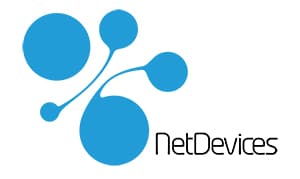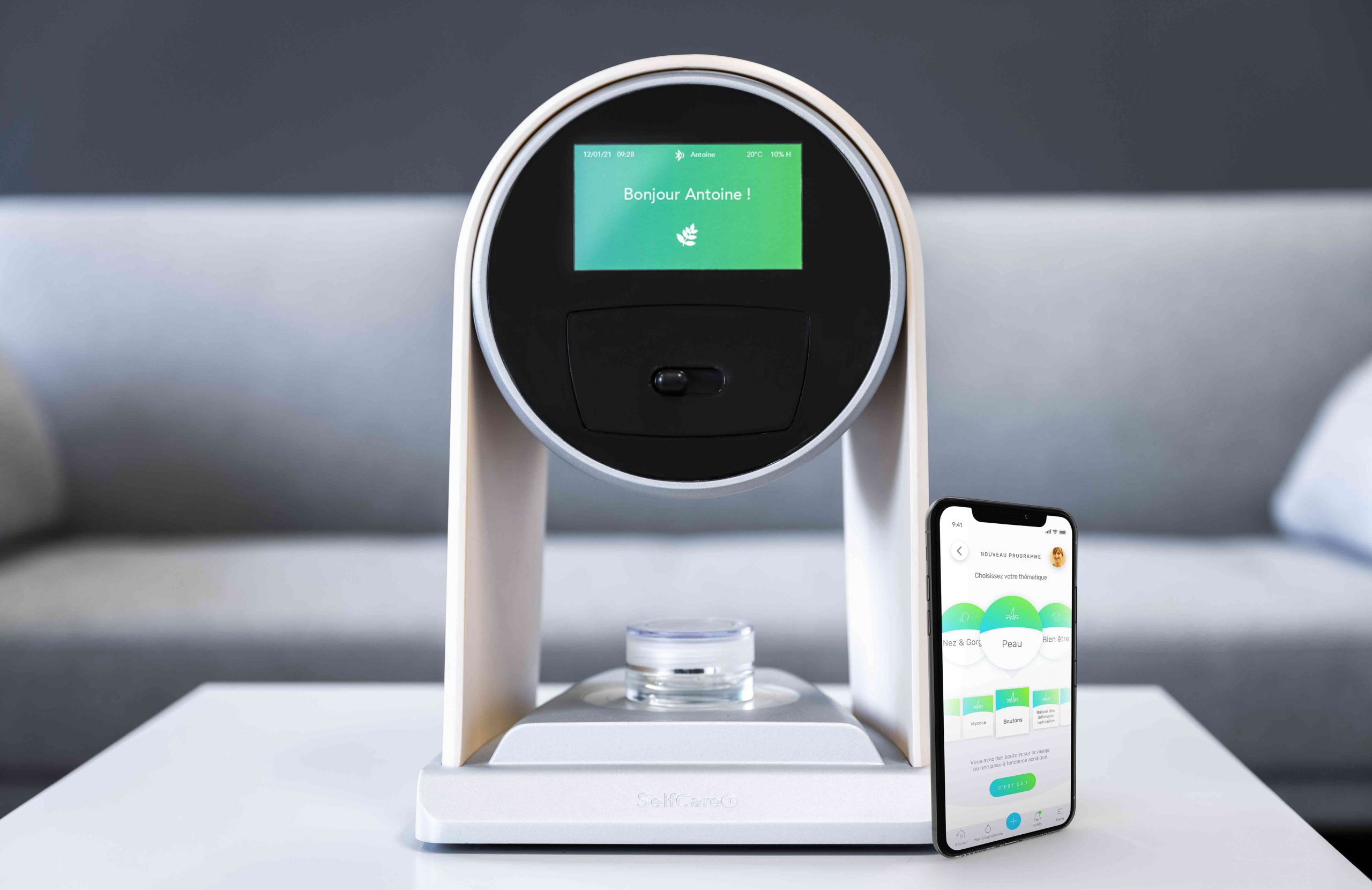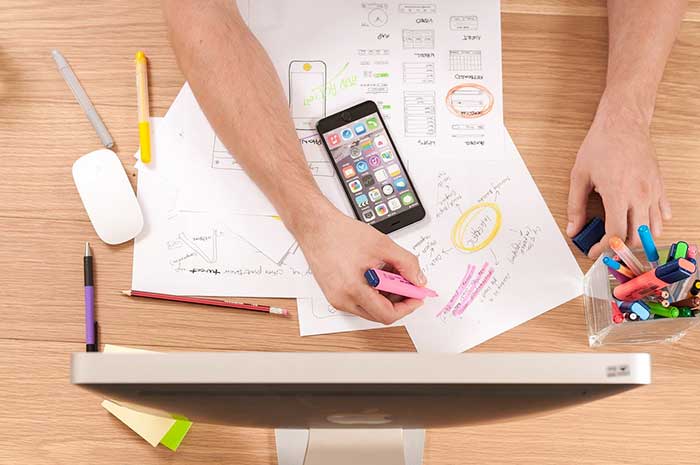NetDevices vous offre un article dédié à :
L’entreprise Family Self Care
La start-up française Family Self Care fut créée en fin de 2017. Elle est spécialisée dans la robotique, les objets connectés, l’intelligence artificielle et l’électronique grand public pour la santé quotidienne. Elle est née de la vision de fondatrice Brigitte Thito. Celle-ci possède vingt années d’expérience dans l’industrie pharmaceutique. Par ex. : telles que Tambrands/Procter & Gamble, Walgreens Boots Alliance, Merck Consumer Health et Boots Healthcare.
L’entreprise a développé le SelfCare1®, une nouvelle technologie qui répond aux attentes des clients. Elles concernent la prévention naturelle et l’efficacicté de leurs soins de corps et de l’esprit à travers l’utilisation d’huiles essentielles. Dans un premier temps, Family Self Care proposait aux clients un kit d’huiles essentielles avec le distributeur intelligent SelfCare 1. Celui-ci est connecté avec une application associée. Cette machine se connecte à l’application de coaching expert active via le Bluetooth dans le téléphone portable des clients. Il s’agit de distribuer des doses d’huiles essentielles personnalisées et précises en réponse à des problèmes de santé. Il convient aussi de définir un profil d’utilisateurs (âge,sexe,contre-indications). L’utilisation est à tout moment : à domicile ou au bureau.
L’application de la machine commande alors une cartouche placée dans le robot (8 huiles bien-être quotidiennes) pour une longue durée. Elle sélectionne la combinaison d’huiles essentielles requises et donne les instructions d’utilisation pour offrir une consommation d’huiles sans gaspillage.
Exemple d’utilisation de l’application
Un sportif qui utilise les huiles essentielles pour la relaxation de ses muscles. L’application se base sur profil et son besoin. Elle lui recommande alors de mélanger une dose d’huile exotic basic avec une dose de rosewood.
Les applications mobiles
Dans le cadre de la conception du premier distributeur intelligent d’huiles essentielles de notre client Family Self Care, la team NetDevices a rejoint le projet de la société en décembre 2019 afin de développer les applications SelfCare1.
Les applications mobiles permettent ainsi aux utilisateurs de connecter leur téléphone portable avec la machine pour créer les mélanges d’huiles bien-être.
Notre Lead Dev Mobile Benoît a conçu le protocole spécifique de communication basé sur le BLE (bluetooth low energy) des applications afin qu’il puisse communiquer avec la machine.

Les différentes étapes principales furent :
- Etude du code déjà et protocole hardware de la machine
- Choix des bibliothèques Bluetooth React Native
- POC (Proof of Concept) et choix de la stack
- Intégration des bibliothèques React Native dans les apps
1 – Etude de l’existant
La première étape d’un existant fût l’étude du code source (React Native, PHP principalement), puis de proposer une architecture du projet dans sa globalité et de proposer les bases de la mise en œuvre des applications.
2 – Recherche de bibliothèques
La première partie consiste à étudier un document technique fourni par le fabricant hardware (document décrivant la façon dont la machine communique).
En parallèle de cette étude, Benoit mène aussi une recherche de bibliothèques BLE react native.
En informatique, la bibliothèque est un ensemble de fonctionnalités. Ces dernière repose sur un code, un langage spécifique. L’avantage principal de l’utilisation d’une bibliothèque pour les développeurs est le gain de temps.
Dans le cadre du projet, deux bibliothèques permettant l’utilisation du module bluetooth sur smartphone sont sorties du lot. La communauté de chaque bibliothèque fait son choix en fonction du nombre de “bugs” connus, de la qualité de la documentation et surtout de la maintenabilité. En effet chaque bibliothèque a eu plusieurs versions au cours de l’année.
3 – POC
Une fois la sélection faite, nous avons donc créé un POC pour chaque bibliothèque. Généralement, il s’agit d’un projet avec le minimum de code, peu de design, peu ou pas de gestion d’erreur, il sert à valider les choix techniques avant de se lancer dans les développements complexes.
4 – Intégration de la bibliothèque dans les applications
Après validation via le POC et sélection de la meilleure bibliothèque, l’étape suivante a été l’intégration de cette bibliothèque et gérer la communication / pilotage du distributeur SelfCare1.
Enfin, l’intégration en elle-même d’une bibliothèque ne suffit pas, il a fallu l’adapter afin d’intégrer les différentes caractéristiques du protocole attendu par la machine.
5 – Ensemble du projet
Enfin, Benoît s’est occupé du développement des écrans applicatifs, de l’écriture de tests automatisés (Mocha, Enzyme, Chai).
Depuis mars 2021, les premières livraisons de la machine SelfCare1 ont démarré, aux Etats-Unis et en Europe !
Partager la publication "Family Self Care, la solution santé à base d’huiles essentielles"



